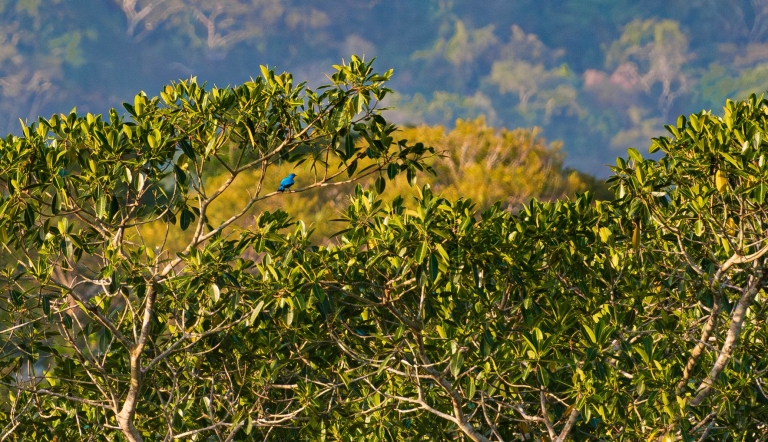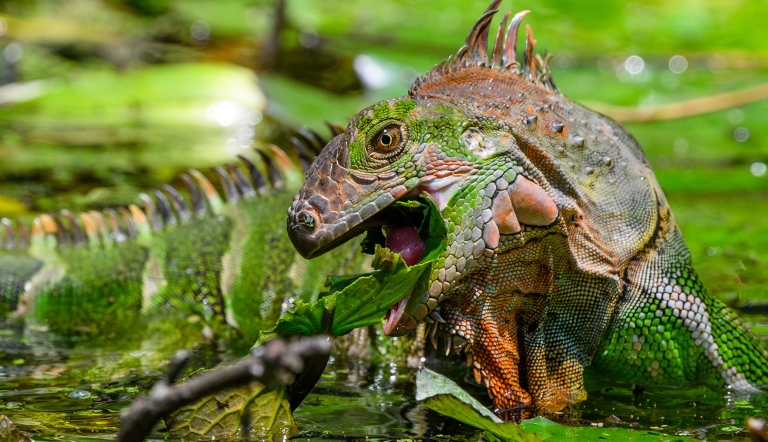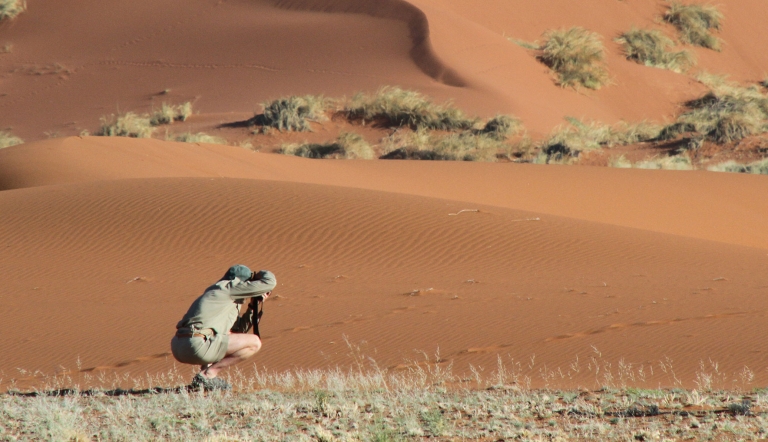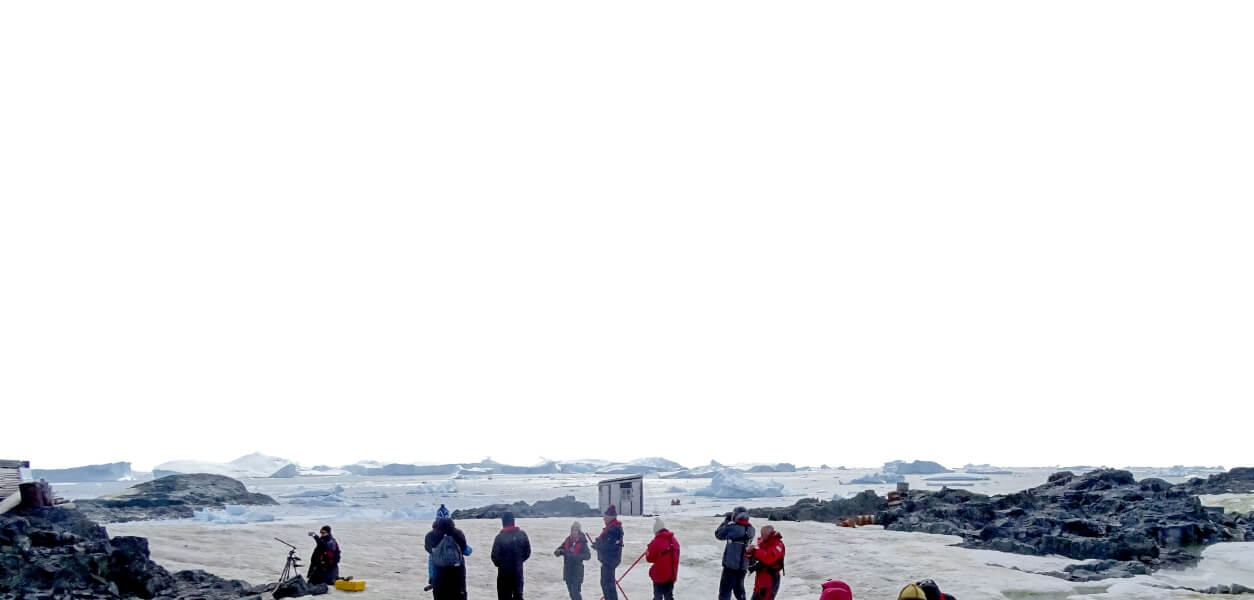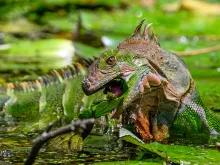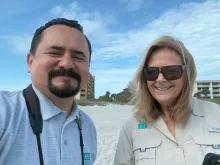It is always important to remain environmentally conscious, even when traveling abroad. While this might seem like an impossible task, traveling in an eco-friendly way is much easier to do than it sounds. By making a few small changes that add up, you can make a huge impact on the earth’s well-being. Here are six tips to reduce waste and protect the environment anywhere you travel.
Choose Carbon Offsetting
Carbon offset is a great way to address climate change and encourage the growth of renewable energy. Carbon Offset is the option for people to invest in carbon projects aimed at reducing emissions by neutralizing its effects. By flying with an airline or selecting a tour operator that offers carbon offset, or offsetting your emissions through a third-party provider for an extra cost such as Carbon Fund, South Pole Group, or ClimateSafe, you can reduce emissions of carbon dioxide. Holbrook Travel has paired with ClimateSafe to offer carbon offsetting on many of its trips.
Plan Transportation Carefully
The way you choose to travel to and around your destination has a huge impact on the environment. Air travel is makes up 3% of all global carbon emissions, so when flying to your destination, try to book a round-trip flight if possible in order to reduce takeoffs and landings, which create most of airplanes emissions. Once you are at your destination, choose smaller, expedition-style cruises or land-based tours over large cruise tours. Smaller vessels or land tours have a smaller carbon footprint than these large boats because they don’t burn as much fuel. Making these small changes in your transportation habits helps reduce its impact on the environment.
 African Safari
African Safari
Dain Van Schoyck
Avoid Single-Use Plastics
Support the movement to ban single-use plastics, even while you’re in another country, with two easy fixes. Purchasing a reusable straw and water bottle to take with you on the go will make your travel experience much easier, eco-friendly, and affordable. Reusable straws are perfect to bring when going out to local restaurants, and a reusable water bottle is a traveler’s best friend, whether you are out in the wild or just walking down the street of a local town. Save money and fill up your bottle instead of buying a new plastic bottle every time you are thirsty. You can even purchase a water bottle with a built-in filtration system for when you travel off the beaten path and need to stay hydrated. Popular options include the Grayl GeoPress Purifier and the Hydro Flask Standard Mouth Bottle.
Another source of single-use plastic commonly used when traveling is toothpaste. A lot of people don’t realize how much waste toothpaste tubes create because of their packaging’s single-use nature. Toothpaste Tablets get rid of the unnecessary waste created by disposing of regular-sized and travel-sized toothpaste tubes by eliminating the plastic packaging altogether. Tablets are placed in a fully-compostable bag. To use them, you just take a tablet, chew it in your mouth to create the paste, and then start brushing like normal. They are also perfect for travel because travelers can avoid the dreaded three ounce limit of liquids they are allowed to take on flights. Traveling eco-friendly has never been so easy with this innovative, earth-friendly alternative.
Reduce Energy and Water Usage in your Hotel Room
Traveling Eco-Friendly doesn’t stop when you get back to your hotel room after a long day of exploring. On average, hotel rooms consume 53 gallons of water per day, according to coloradowaterwise.org. Help reduce this large amount of water and energy usage by being conscious of how much you are consuming on our trip; take shorter showers, hang your towels up to dry to reduce the hotels laundry amount, turn off energy-using items when you exit your room, close the blinds to keep out the sun to avoid using heat, and opt for the fan instead of AC. No matter what type of accommodations you have arranged to stay overnight in, these small changes will have a huge impact on the environment.
Don’t Buy Illegal Animal Products
When walking through a gift shop in a foreign country, you might see products made of elephant ivory, rhino horns, sea turtle shells, or tiger fur. These are made from endangered animals or plants, and are part of the illicit wildlife and plant trade, which is estimated to be worth billions of dollars a year, according to the World Wildlife Fund. Travelers should never buy any of these products because it promotes illegal poaching, causes further damage or possible extinction of already suffering populations, and destroys biodiversity.
When it comes to souvenirs such as jewelry, picture frames, instruments, or household decorations, it may not always be obvious that illegal wildlife or plants have been used. You can download these helpful guides to help you distinguish what is okay to buy and what you should avoid purchasing while abroad. When in doubt, ask the seller: What is this made of? Where did this come from? And do I need permits or other documents to bring this home?
 Elephants in Tarangire National Park
Elephants in Tarangire National Park
Harvey Barrison
Eliminate Reef Damaging Sunscreen
This is important to keep in mind when traveling to beach or coastal destinations like the Caribbean, Hawaii, Belize, or Australia. Certain sunscreens have reef-damaging chemicals like oxybenzone, octinoxate, methyl paraben, and phenoxyethanol that cause deformations in juvenile corals and leads to coral bleaching. In order to avoid causing further damage to these creatures, invest in safe sunscreen so you can feel good about swimming in the water. There are now many brands dedicated to making environmentally safe sunscreen for an affordable price. Here are a two top-rated brands: Raw Elements natural sunscreen and Thinksport Everyday Face Sunscreen.
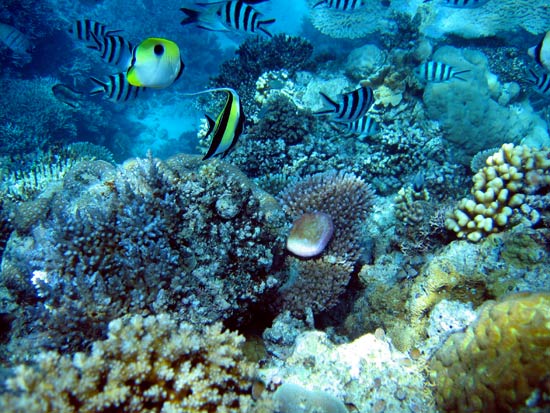 Great Barrier Reef
Great Barrier Reef
Mads-Bødker

